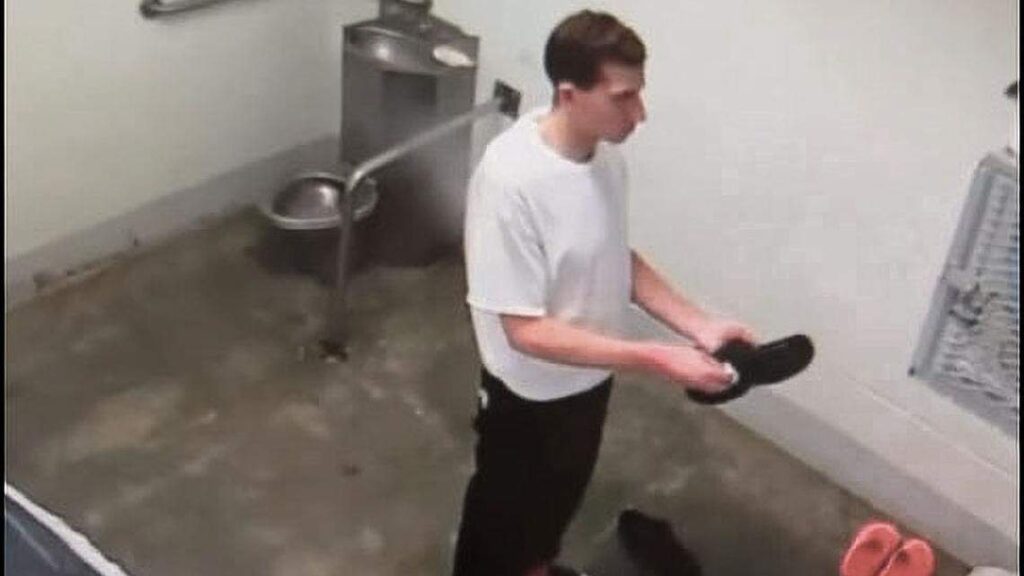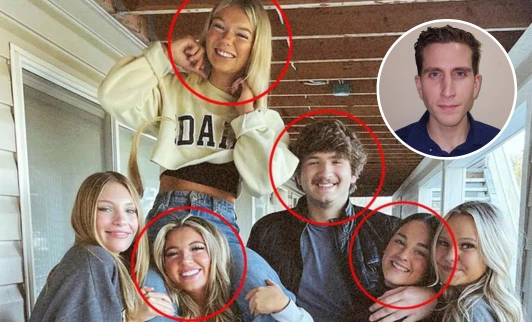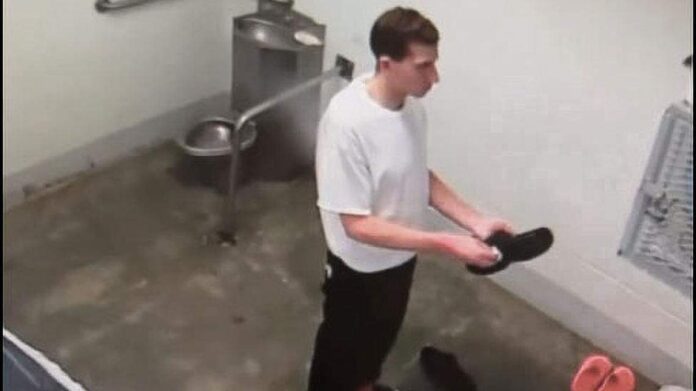Video leaker from Kohberger jail: Prosecutor Bill Thompson underlined the need of closure for families as Bryan Kohberger was remanded to Idaho State Prison for life.
The prosecutor remarked that this moment offers much-needed justice to loved ones and the community. By Ada County Courthouse, Loumay Alesali
The correctional officer accused of capturing and leaking prison surveillance video of Bryan Kohberger, the man spending life in prison for the deaths of four University of Idaho students, will not face criminal charges, according to state police.
Prison authorities and Idaho State Police have ended their investigation into the video leak, which the state prison system said last month was “authentic” and “in clear violation” of Idaho Department of Correction rules.
After the video surfaced online in August, prison officials pledged to locate the culprit and hold them responsible, including firing and, perhaps, criminal prosecution.

State Police spokeswoman Aaron Snell told the Statesman that investigators think they have identified the male IDOC staffer responsible.
Even though the prison system explicitly bans photographing a surveillance camera stream, it was determined that the behavior did not violate state or federal law, he added.
The employee resigned from his position with the state prison system before he could be dismissed, Snell said. “He has now resigned, and there is no criminal violation we can charge him with,” he said.
“This video does not fall under the definition of contraband.” Prison authorities refused to offer any other information on the former employee, citing Idaho personnel laws. “The individual responsible for the policy violation was identified and has since left the agency,” IDOC spokeswoman Sanda Kuzeta-Cerimagic said in an email.
“The matter was sent to the Idaho State Police, who found that there was insufficient evidence to file criminal charges.
We are dedicated to maintaining the highest standards of behavior and will continue to enforce all regulations to ensure the safety of both prisoners and staff.”
Kohberger, 30, was convicted to four consecutive life sentences in July for the November 2022 murders of four University of Idaho freshmen in Moscow.
In a plea deal with prosecutors, he agreed to no parole and relinquished all of his appellate rights in return for the death sentence being dropped.

The four victims were seniors Madison Mogen and Kaylee Goncalves, both 21, junior Xana Kernodle, 20, and freshman Ethan Chapin.
The three ladies resided in an off-campus residence on King Road, and Chapin was Kernodle’s boyfriend who had stayed over when they were slain in an early morning knife assault.
On July 23, Kohberger was transported from the Ada County Jail in Boise to the state’s maximum-security prison at Kuna. He entered the prison’s medical section and was confined there for six days before being transferred to a solitary confinement cell in another wing dubbed J Block, which houses death row detainees.
According to a letter acquired by the Statesman via a public documents request, Kohberger’s public defender, Anne Taylor, informed state prison officials on August 14 about the stolen film of her client in jail and provided two links on Reddit.
Edwina Elcox, a Boise-based criminal defense attorney, told the Statesman that she believes the correctional officer might have faced criminal charges for carrying a cellphone into a guarded jail without authorization. With certain restricted exceptions for command-level personnel, such as wardens and chiefs, IDOC’s customary protocols prohibit staff and contractors from carrying smartphones into a prison without prior written consent.
It is unclear if the correctional officer who is thought to have videotaped Kohberger’s security in his cell was authorized to have a cellphone in that part of the maximum-security jail.
The standard procedures warn that introducing such a device into the prison system “is contraband and could result in administrative action, criminal charges, or both” and cite Idaho law 18-2510. “Their very own policy references the criminal statute,” Elcox said in a phone interview. “I believe they could make a case for it if they wanted.
And if you weren’t permitted to have it, you were warned that you may face prosecution, so you did this.” On Wednesday, Kohberger was still recorded as being in his J Block cell at the highest security jail.
